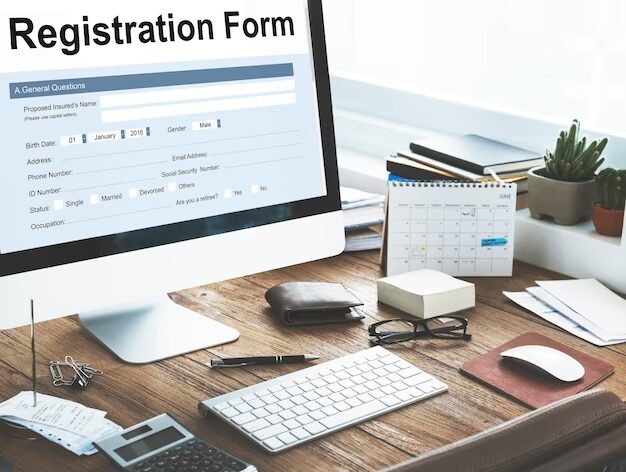Rise Of DAO LLCs: Traditional Structures With Blockchain Innovation
by Abdul Aziz Mondal Business Development Published on: 15 February 2024 Last Updated on: 08 May 2025

Decentralized autonomous organizations (DAOs) are one of the most exciting innovations in the blockchain space. DAOs allow groups to coordinate and make decisions without traditional hierarchical management structures. Instead, governance rules are encoded into smart contracts on a blockchain.
While DAOs provide new opportunities for collaboration and governance, integrating them into existing legal frameworks can be challenging. One solution is forming a DAO LLC – combining the benefits of decentralization with the familiar structure of a limited liability company.
In this article, you’ll learn how DAO LLCs work and their potential benefits. You’ll also find examples of successful DAO LLCs and advice for forming your own.
Defining Key Terms
To understand DAO LLCs, you first need to grasp some key concepts. Let’s define decentralized autonomous organizations and limited liability companies and why combining them can be powerful.
Decentralized Autonomous Organizations

A decentralized autonomous organization is an entity with no central leadership. DAOs exist entirely on the blockchain and are governed by smart contracts. These contracts encode the rules around governance and operations.
DAOs allow groups to coordinate without traditional hierarchies. Members can propose changes, vote on decisions, and allocate resources through protocols defined in the code. This structure increases transparency and democratic participation compared to typical top-down management.
DAOs first emerged in 2016 with The DAO, a venture capital fund based on Ethereum. While The DAO ultimately failed, it inspired extensive innovation in decentralized governance. DAOs are now used for applications from philanthropic grants to social clubs.
However, challenges remain in integrating DAOs into legal systems premised on traditional business entities. Forming a DAO LLC helps bridge this gap.
Limited Liability Companies
A Limited Liability Company (LLC) is a widely used business structure that merges features of both corporations and partnerships. They provide the limited liability protection of a corporation with the pass-through taxation benefits of a partnership.
The LLC structure is flexible and relatively straightforward to set up. LLCs limit owners’ liability, meaning their assets are protected from liabilities and business debts. Profits pass directly to owners who report earnings on their tax returns.
LLCs also have fewer reporting requirements and corporate formalities than traditional C-corps or S-corps. Overall, the LLC model provides a simple yet powerful legal and financial framework for starting a business.
Combining DAOs And LLCs
A DAO LLC fuses the decentralization of DAOs with the practical viability of LLCs. LLC status essentially upgrades a DAO into a legally recognized business entity. This unlocks possibilities like asset ownership, contracts, and limited liability that pure DAOs can’t access.
Structuring as an LLC also provides a familiar framework for governments. Regulators are still coming to terms with decentralized autonomous networks that transcend jurisdiction. But they understand how to interface with LLCs.
On the flip side, the DAO structure bakes transparent democratic governance into an LLC’s operations. This democratizes LLCs beyond just the owners/investors to potentially include employees, customers, and community members impacted by the business.
Overall, the DAO LLC signals how decentralized blockchain technologies could reshape organizational models from within existing legal systems. It strikes a productive balance between innovation and regulation. For better guidance, consider hiring a Florida cryptocurrency attorney or someone in your area.
DAO LLC Benefits
Forming a DAO LLC offers several advantages over a traditional LLC or pure DAO. Consider how a DAO LLC:
- Provides limited liability protection for members
- Allows owning assets and entering contracts
- Integrates seamlessly with existing legal frameworks
- Enables transparent and democratic governance through blockchain
- Maintains privacy since LLCs aren’t required to disclose all records
Limited liability is a major benefit. A DAO existing purely on the blockchain can’t limit legal and financial risks to its members. However, structuring it as an LLC caps members’ liability to their investment in the company.
The ability to own assets and enter agreements is also crucial. Pure DAOs can’t hold bank accounts, intellectual property, or legally binding contracts. An LLC wrapper solves these issues, empowering the DAO to operate like any other business.
DAO LLCs also avoid regulatory uncertainty that plagues some blockchain projects. Regulators across the world are still figuring out how to treat decentralized networks. However, LLCs have existed for decades, providing a familiar structure for businesses and governments alike.
Transparency and democratic governance via blockchain remain core benefits of the DAO model. Members can vote on decisions, review financial records, and propose changes through predefined smart contracts. However, an LLC wrapper provides flexibility if alterations to governance processes become necessary down the road.
Ultimately, the DAO LLC balances decentralization with practical utility. You keep the innovative democratic systems of a DAO while integrating them into existing legal and financial worlds.
Read Also: What Is Crypto Exchange?
Examples Of DAO LLCs
Several high-profile projects have utilized the DAO LLC structure to drive blockchain adoption while ensuring legal compliance. These examples showcase the diverse applications of DAO LLCs.
- MakerDAO
MakerDAO is the most prominent example of a DAO LLC. It issues Dai, a decentralized stablecoin collateralized by crypto assets. Dai aims to maintain price parity with the US dollar.
MakerDAO originated as a pure DAO but transitioned to a DAO LLC in 2020. This provided formal legal recognition and helped MakerDAO integrate with legacy banking systems to grow Dai’s use. The LLC now holds over USD$5 billion worth of assets.
Operating through a DAO LLC didn’t compromise MakerDAO’s decentralization. Token holders vote on governance changes through blockchain systems. However, the LLC wrapper provided critical utilities like trademark protection and proxy voting mechanisms to uphold legal compliance.
- DAOHaus
DAOHaus provides tools and templates for creating and managing DAOs. Users can build customized organizations focused on funding goals from public goods to software projects.
The DAOHaus interface itself is a DAO LLC that oversees the development of the platform. Members collectively govern through proposals and voting on new features and upgrades. DAOHaus showcases the community ownership and democratic processes enabled by DAOs.
- The LAO
The LAO (Limited Liability Autonomous Organization) popularized the DAO LLC concept. It specifically focused on funding small to midsize grants for public benefit initiatives.
The LAO raised over USD 4 million to fund causes selected through the democratic DAO process. Examples include supporting indie game developers and open-source software.
Structuring as a DAO LLC allowed The LAO to hold and disburse funds in a legally compliant way. It set a precedent for how DAOs can integrate with traditional financial systems.
How To Form Your Own DAO LLC

DAOs LLCs offer an appealing solution for Web3 projects seeking real-world impact. If you want to create one, here are steps to get started:
Build The DAO’s Governance Structure
The first step is deciding how your DAO will be governed. You need to outline the rules and procedures that will be coded into smart contracts. Some key considerations:
- Will membership be open or limited? An open system allows anyone to join by acquiring tokens, while a closed one restricts membership.
- How will votes be allocated? Options include one vote per member, stake-weighted voting based on token holdings, or quadratic voting, where members spend tokens to boost their influence.
- What kinds of proposals can members submit? The rules need to define what types of actions, upgrades, funding allocation, etc., token holders can vote on.
- How will proposals be executed if passed? Smart contracts need to be designed to implement proposal outcomes automatically.
- What thresholds constitute a passing vote? This depends on the risk level of the proposals. Higher-risk changes may require a larger supermajority.
Thoroughly game out how you want governance processes to work. The design impacts power balances and decentralized principles. Get feedback from legal experts also to ensure compliance.
Draft An Operating Agreement
The operating agreement is like a constitution for your DAO LLC. It establishes ground rules, including:
- Ownership structure – How tokens representing ownership are distributed and tracked
- Member rights and responsibilities – Voting processes, proposal submission systems, member expectations
- Profit distribution – How profits flow through to members based on tokens held
- Management – Whether certain individuals are tasked with administrative functions
- Amendments – How operating rules can be changed over time
You want to codify governance models in precise legal language. Leave nothing ambiguous to avoid conflict down the road. Often, templates are adapted from an existing DAO or drawn up by legal counsel.
Register The LLC

Like any LLC, a DAO LLC must be formally registered with state authorities by filing articles of organization. Key steps include:
- Name registration – Securing the official name of your DAO LLC
- Appointing a registered agent – This party receives official notices on behalf of the LLC
- Drafting articles of organization – Document establishing business purpose, membership structure, management, etc.
- Filing with the state – Submitting all documents and fees to register with the state
- Tax elections – Choosing whether the LLC will be taxed as a C-corp, S-corp, partnership, etc.
Proper LLC registration ensures your DAO exists as a legal entity. It also provides limited liability protections for members.
Develop Smart Contracts
Here, your DAO governance model gets translated into code. Smart contracts will automate rules around:
- Token issuance and tracking – How ownership and voting rights are represented
- Proposal submission – Creating and recording proposed actions
- Voting – How votes are captured on-chain and weighted
- Vote processing – Calculating results and implementing actions if the vote threshold is met
Development should follow best practices like careful validation, security audits, and formal verification. You want airtight smart contracts that faithfully execute the DAO’s governance aims.
Tokenize Governance And Ownership
Finally, you’ll issue tokens representing various membership rights and privileges. Tokens can encode:
- Ownership – Entitling holders to a share of profits
- Voting power – For participating in DAO governance
- Access – Confer special rights like using DAO resources
- Reputation – Reward active, high-quality participation with influence
Carefully allocate tokens according to the terms of the operating agreement. Once distributed, your DAO LLC can commence operations on the blockchain while meeting legal compliance!
Make sure to consult legal counsel specialized in Web3 and blockchain technology when forming a DAO LLC. Navigating compliance across decentralized and legacy systems requires expert guidance. But done properly, a DAO LLC offers the best of both worlds.
The Future of DAOs And Governance

DAO LLCs are just one model for integrating decentralized governance with existing legal paradigms. This evolution is critical for blockchain adoption, as regulators and courts are still figuring out how to treat purely decentralized networks.
New blockchain-friendly regulations and corporate structures are also emerging. For example, Wyoming introduced DAO LLC legislation in 2021, recognizing them as legal entities. Expect more innovation in decentralized governance frameworks as blockchain technology matures.
Ultimately, the goal is unlocking the transparency and cooperation benefits of DAOs for real-world use cases. DAO LLCs allow harnessing these advantages while navigating practical legal and financial realities. They provide a bridge for making decentralized collaboration mainstream.
Conclusion
DAO LLCs allow the merging of decentralized autonomous organizations with familiar limited liability company structures. This balances the transparent democratic governance of DAOs with critical utilities like limited liability and legal recognition.
DAOs offer groundbreaking possibilities for cooperative blockchain-based projects. Forming them as LLCs creates opportunities for real-world impact and adoption. With thoughtful design and legal guidance, DAO LLCs can drive blockchain innovation and disruptive new models for business and governance.
Read Also:



































































































